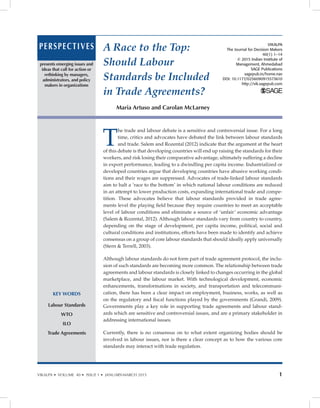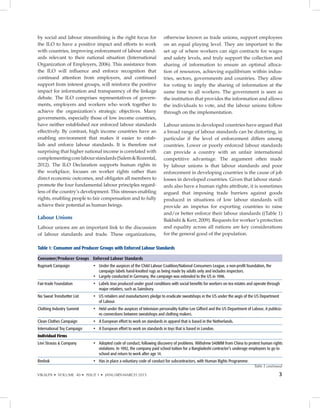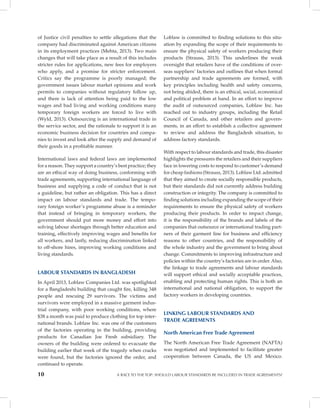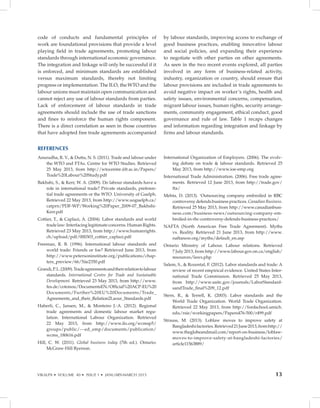1) The document discusses the debate around whether labour standards should be included in trade agreements. Supporters argue it prevents a "race to the bottom" in labour conditions, while critics argue it risks reducing developing countries' competitiveness.
2) The key organizations involved in this issue are the WTO, ILO, and labour unions. The WTO focuses on international trade but has faced challenges incorporating labour standards. The ILO is responsible for international labour standards and ensuring core rights are respected globally. Labour unions represent workers' interests within the debate.
3) There is currently no consensus on the extent these organizations should be involved in labour issues or how standards may interact with trade rules. Governments must balance economic and social













